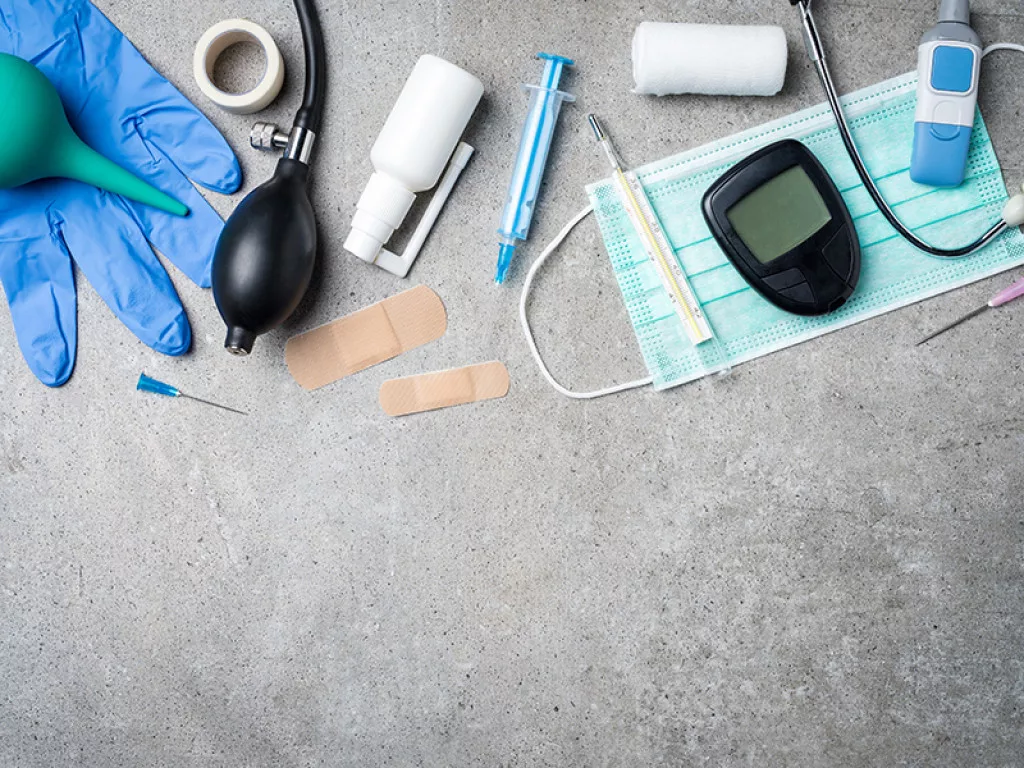National Medical Stores (NMS) is the parastatal organisation fulfilling the critical mandate of distribution, storage, and procurement on behalf of Uganda’s public healthcare facilities.
INTRODUCTION
The provision of critical health care simply is not possible without a robust and reliable supply network. Simultaneously, without the correct storage and access, medicines and supplies can soon become redundant.
In the ‘Pearl of Africa’, public healthcare providers are the true backbone of the sector, responsible for supplying the majority of Uganda’s health coverage. With the country operating a de-centralised health system, National Medical Stores (NMS) exists as a semi-autonomous parastatal institution at national level.
As a government organisation, NMS is the public agency charged with the distribution, storage, and procurement of medicine and medical equipment to all public healthcare facilities across Uganda. Headquartered in Entebbe, NMS take pride in executing its ambitious mandate concerning the handling and dissemination of human medication and health-related consumable items to government-owned health units across Uganda. The company’s inception was incorporated into Ugandan legislature in 1993 with the organisation presided over by a Board of Directors.
Leading with the mantra, ‘Passionate About Your Life’, NMS is driven by a prevailing concern for caring for the communities in which it serves.


A NATIONAL FOOTPRINT
In order to best meet the needs of the many national districts that it serves, NMS operates from a network of ten separate regional offices.
NMS’s logistical prowess finds its nexus at the company’s sole central warehouse, which is complimented by an extensive fleet of vehicles catering to distribution. This enables the company to also fulfil warehousing and distribution services for other NGO’s and government organisations. Indeed, since its nascency, NMS’ mandate has expanded to serving 100 percent of Uganda’s government health facilities, spanning the police, army, and prisons.
The company is equipped with a significant stock of medicines designed to equip all government hospitals and health centres on a routine basis, with product embossment in place to ensure that supplies are not liable to misuse on the open market.
Operating based on a centralised procurement system, NMS work with local partners and international vendors channelled through local distributors. By making use of a selection of local manufacturers, NMS work to ensure a reliable supply chain based on Ugandan soil.
Reflective of the company’s strong relationship with the Ugandan Ministry of Health (MoH), NMS joined with the MoH and other key stakeholders to introduce a pioneering ‘Basic Kit’ – a basic supply of medicines that is distributed to all health centres across the country. The components of the kit are revised annually in alignment with the current local health situation, with delivery undertaken routinely on a bi-monthly basis.
Complimentary to this, NMS has also implemented a ‘Last Mile Delivery System’ through which the company ensures that all medicines and other medical supplies safely reach the end user across all government health facilities safely, and on time. Through this system, NMS is able to publish user-friendly medical supply delivery schedules for greater transparency and supply predictability. This programme has also been significantly conducive to optimised warehouse management, in monitoring the supply of stock to avoid shortages.
“Our vision is of a population with adequate and accessible quality medicines and medical supplies”
National Medical Stores

HURDLES AND HEADWINDS
Although a universal health crisis, Uganda has been severely impacted by the COVID-19 pandemic, particularly since a lack of basic health resources has historically been considered the country’s greatest impediment to widespread health coverage.
With high community infection rates, and lower inpatient numbers, the ruinous impact of the virus on both social and economic exchanges has been suffered in waves ever since the country’s first recorded case on 15th March 2020. As of September 2021, some 18 months later, the country is still registering a staggering rate of over 3,000 confirmed cases per day according to Our World in Data, although this number cannot be fully verified due to the limited testing facilities in-country.
Subsequently, NMS has been faced with the logistical Everest of facilitating an unprecedented supply of PPE and oxygen tanks, specifically in response to the coronavirus outbreak.
At the same time, NMS had to safeguard its own people. As such, the company was quick to respond to remote working, and adapting to staff remote working and adhering to the COVID-19 protocol that we have all become so familiar with. In recognition of the need for greater efficiency whilst dealing with larger volumes, NMS also increased their call centre capacity in order to ensure the supply and storage of the Pfizer vaccine.
But as with all challenges, comes opportunity, and the possibility to rethink means of working born from the necessity to overcome new hurdles. It is here that innovation comes to the fore. This led NMS to invest in the construction of a new, cutting-edge warehouse facility, alongside technological and software investments, including a new ERP system to streamline processes.
The concept of digital innovation at the company is best embodied by the NMS Smart Care suite of products, that effectively enable both public health facilities and the general public to give and receive feedback on the medicine and medical supplies distributed by NMS in real time.
Prior to this progressive development, the entire system was reliant on paper-based forms that were sent by courier to NMS whenever any issues in supplies were encountered. This dated system meant that it could sometimes take up to three months for feedback to be delivered, providing that the forms themselves did not become damaged during the delivery process.
Since implementing the system, NMS has observed significant improvements concerning the resolution time and effective handling of company feedback.
Aside the sheer logistical feats posed by COVID-19, NMS must also confront the skill shortages that prevail within both supply chain management and client services. To confront this obstacle, the company is looking to undertake future collaborations with academic institutions to attract some of Uganda’s finest young talent.
“Our core values are customer focus, operational excellence, teamwork, accountability, and integrity”
National Medical Stores


FUTURE HORIZONS
Responding to the overwhelming demand that has been experienced in the last 18 months, expansion is well and truly top of the agenda for NMS. The company will soon benefit from an increased capacity, following the launch of a new warehouse that is set to quadruple in size compared to its current facility. The new warehouse is situated on 10 acres of land and will contain 30,000 pallet locations.
A state-of-the-art facility that will boast an oxygen and quality control centre, the advanced stages of the construction are currently underway and due for completion in November. As NMS’ new flagship facility, the warehouse launch ensures that the company keeps abreast with innovation and incorporating technological efficiencies to further optimise operations.
Continuing on the perpetual journey for improvement in the face of constant change and a relentless demand for critical health supplies, NMS is well-positioned to cater to Uganda’s healthcare needs for years to come.































